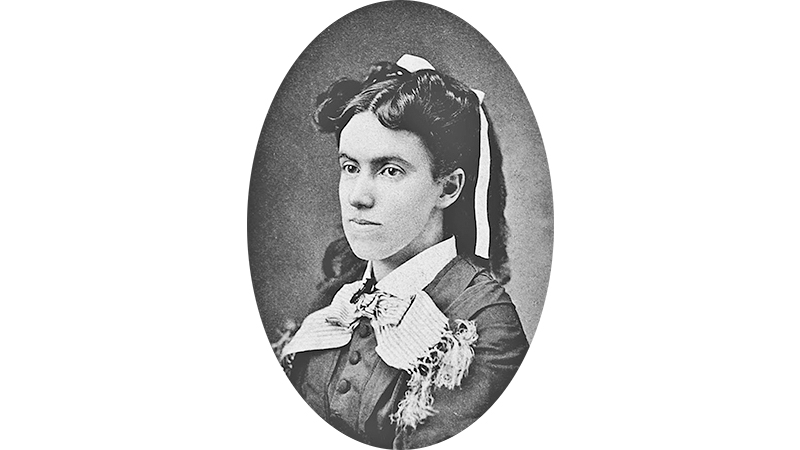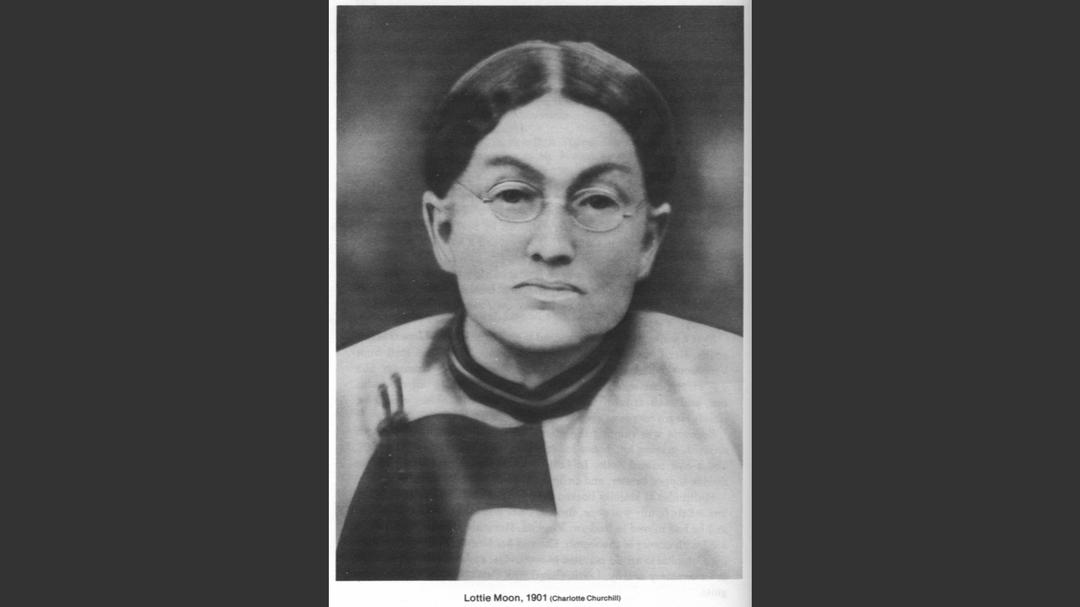



Charlotte Digges Moon came from an unconventional family and spent an unconventional four decades in China. Reared in the antebellum South as the fourth of seven children, Moon gave her life to Christ at age 18 after a time of rebellion. One of her sisters was trained in medicine and served as a missionary in Palestine; another was the first single female sent to China by the Southern Baptists. Lottie earned an M.A. in English, and her writing skills helped her to influence generations for missions.
Moon arrived in Shandong in 1873. She had been a schoolteacher in the U.S., so she was assigned to teach Chinese girls in coastal Penglai (then Tengchow). She chafed at this role and finally moved inland to Pingdu in 1885 to work as an evangelist. Moon joined pioneers like Morrison, Gützlaff and Taylor in perceiving that eating and dressing like the Chinese would break down cultural barriers. She often wrote strongly against unbiblical restrictions on female missionaries, observing that “Our Lord does not call women to preach, but He surely commands them as well as men to go work in the vineyard.” Moon relied on ordained men to conduct baptisms, and God raised up a powerful Chinese co-worker for her, Pastor Li Shouting. Li suffered greatly in the Boxer Uprising, but lived to baptize over one thousand and see Pingdu become the greatest Southern Baptist center in China.
Moon’s many letters and reports challenged Southern Baptist women to become involved in missions. One response was the inauguration of a now-legendary annual offering for missions. The first offering raised $3,315.26, and total giving has now exceeded $3 billion. As the Master Potter allowed Lottie to pass nearly 40 years in China, year by year His gentle hands continued to shape her character and conform her to the image of His Beloved Son. The young woman who came to China with many racial prejudices eventually identified so deeply with the Chinese that she once commented on the lack of foreign missionaries by writing, “No matter, we natives will do the work.” In 1912 her fellow “natives” were dying from famine, and she used all of her personal savings for relief. As the famine continued, Moon became depressed and stopped eating. She was put on a boat for the U.S. and died en route at age 72.
Lottie once received a marriage proposal from Crawford Toy. Toy had been one of her college English teachers and remarked that she “writes the best English I have ever been privileged to read.” He became a seminary professor, and when she was in China, he proposed that they marry and work as missionaries in Japan. Toy, however, had been influenced by German Modernists and believed in Darwinian evolution. After much study, Moon found this position “untenable”, and she declined his proposal. When asked later in life about having had a love affair, she responded, “Yes, but God had first claim on my life, and since the two conflicted, there could be no question about the result.”
I am more and more impressed by the belief that to win these people to God, we must first win them to ourselves. We need to go out and live among them...We need to make friends before we can make converts.